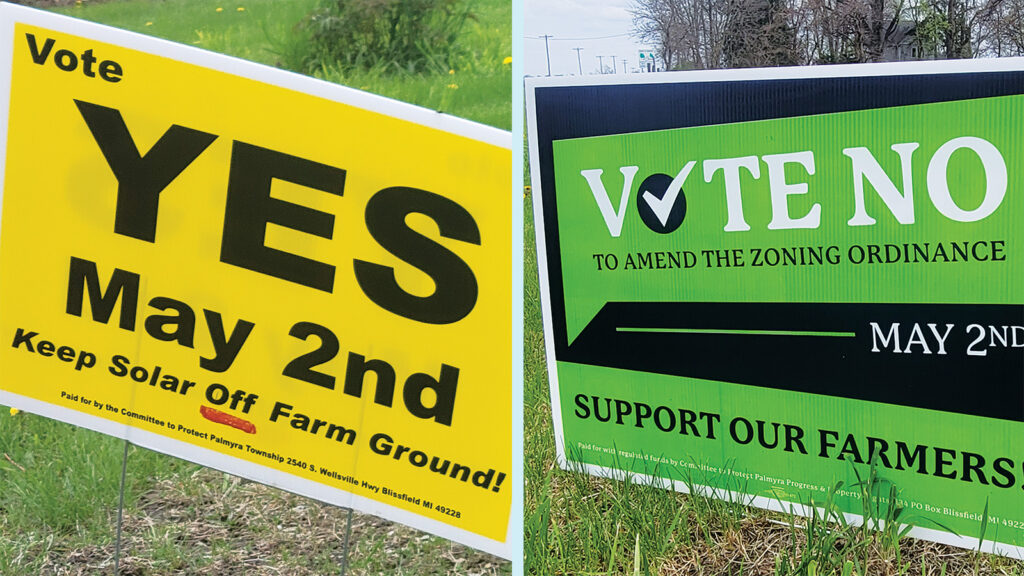
LANSING — Farmers who want to use their land for utility-scale solar power generation will have an easier time doing it, and local governments will have a harder time stopping them, once Gov. Gretchen Whitmer signs a bill that was passed earlier this month by the Democratic majorities in the House and Senate.
The bill will let state regulators override local officials when it comes to allowing large-scale solar and wind projects.
According to Grist, a nonprofit news service that covers environmental issues, Michigan has become a hot spot for debates over whether large-scale solar and wind projects should be allowed on farmland, and if so, how restricted they should be. Before the bill’s passage, more than two dozen local governments in Michigan had blocked or delayed solar and wind developments. One of the most recent was Lenawee County’s Palmyra Township, where a referendum to restrict utility-scale solar operations passed by a 437-146 vote in May.
“Michigan has the most restrictive measures when it comes to siting solar on agricultural land,” Matthew Eisenson, who authored a report on local restriction of solar and wind projects, told Grist. “There’s a lot of apples to oranges, but I think Michigan just has the most activity on this issue of anywhere.”
The Legislature also passed a bill requiring utilities in Michigan to deliver 100% clean energy by 2040.

